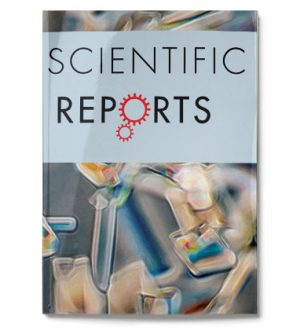Риск развития подагры независимо связан с наличием определенных вариантов ферментов, участвующих в метаболизме этанола.

Абстракт
Подагру вызывает гиперурикемия. Известный фактор риска — употребление алкоголя. Метаболизм этилового спирта осуществляют ферменты алкогольдегидрогеназа (АДГ, ADH) и альдегиддегидрогеназа (АЛДГ, ALDH). Мы провели геномное исследование и тонкое генетическое картирование, в результате которого были выявлены отвечающий за риск развития подагры локус rs671 белка ALDH2. Однако связь между подагрой и частыми вариантами ADH1B неизвестна, что побудило нас изучить связь между подагрой и часто встречающимися дефектными вариантами ADH1B (rs1229984) и ALDH2 (rs671). Мы взяли данные 1048 японцев с клиническим диагнозом подагры и 1334 контрольных японцев. «Вариант с гистидином» (His/His или His/Arg), или rs1229984 (His48Arg), белка ADH1B, в значимой степени повышает риск развития подагры (P = 4,3 × 10-4, отношение шансов = 1,76), как и «вариант без лизина» (Glu/Glu), или rs671 (Glu504Lys), белка ALDH2. Итак, часто встречающиеся варианты ADH1B и ALDH2 независимо друг от друга ассоциированы с риском развития подагры. Полученные нами результаты позволяют предположить, что генотипирование этих вариантов может быть полезным при оценке риска развития подагры.
Sakiyama M1,2, Matsuo H3, Akashi A1, Shimizu S1, Higashino T1, Kawaguchi M1, Nakayama A1, Naito M4, Kawai S4, Nakashima H5, Sakurai Y5, Ichida K6, Shimizu T7, Ooyama H8, Shinomiya N1.
Scientific Reports. 2017 May 31;7(1):2500.
doi: 10.1038/s41598-017-02528-z.
PMID: 28566767 PMCID:
PMC5451470
Спонсор выпуска новостей
![]()
Independent effects of ADH1B and ALDH2 common dysfunctional variants on gout risk.
Abstract
Gout is caused by hyperuricemia, with alcohol consumption being an established risk factor. Alcohol dehydrogenase (ADH) and aldehyde dehydrogenase (ALDH) are crucial enzymes for alcohol metabolism. We recently performed a genome-wide association study of gout and a subsequent fine-mapping study which identified rs671 of ALDH2 as a gout locus. However, the association between gout and common variants of ADH1B has hitherto remained unreported, prompting us to investigate the association between gout and common dysfunctional variants of ADH1B (rs1229984) and ALDH2 (rs671). We used 1,048 clinically defined gout cases and 1,334 controls of Japanese male. The «His carrier» (His/His or His/Arg) of rs1229984 (His48Arg) of ADH1B significantly increased gout risk (P = 4.3 × 10-4, odds ratio = 1.76), as did the «non-Lys carrier (Glu/Glu)» of rs671 (Glu504Lys) of ALDH2. Furthermore, common variants of ADH1B and ALDH2 are independently associated with gout. Our findings likewise suggest that genotyping these variants can be useful for the evaluation of gout risk.
Figure 1
Ethanol oxidization by ADH and ALDH. Ethanol is oxidized to acetaldehyde by alcohol dehydrogenase (ADH), and acetaldehyde is further metabolized to acetate by aldehyde dehydrogenase (ALDH). These oxidization activities largely depend on ADH1B and ALDH2, respectively. The enzymatic activities of ADH1B and ALDH2 depend on common dysfunctional variants, rs1229984 (His48Arg) and rs671 (Glu504Lys) in East Asians, respectively. The A/A (His/His) or A/G (His/Arg) genotype of rs1229984 has been reported to produce 40-fold faster ethanol oxidation by ADH1B than the G/G (Arg/Arg) genotype. Individuals with heterozygotes (Lys/Glu) of rs671 have only 6.25% of the enzyme activity of those with normal ALDH2 (Glu/Glu), and those with homozygotes (Lys/Lys) show almost no activity. Therefore, the Lys carrier of ALDH2 metabolizes acetaldehyde more slowly than the non-Lys carrier, resulting in acetaldehyde accumulation.


